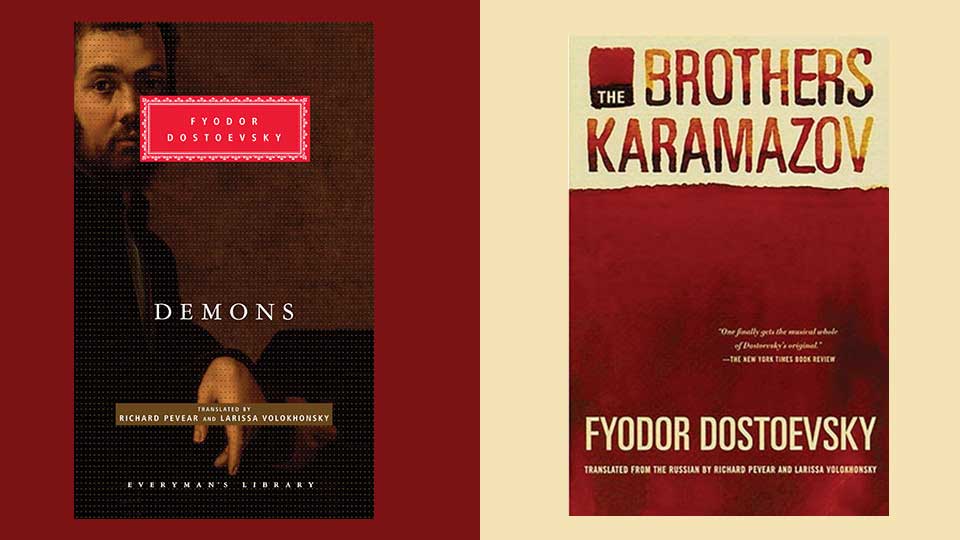Rereading Demons and The Brothers Karamazov

WHAT DO TWO LATE masterpieces by Fyodor Mikhailovich Dostoyevsky, Demons (1872) and The Brothers Karamazov (1880), have in common, apart from the technical fact that the action of both novels takes place in Russia in the late 1860s and early 1870s? Although their main common trait is quite evident, it goes unnoticed not only by ordinary readers but by the great majority of literary experts as well, even though it is indispensable in interpreting each of the novels. They are both narrated from the same perspective: from the point of view of a more (The Brothers Karamazov) or less (Demons) marginal character. That perspective, however, is not as simple as it usually is—and this is where the problems begin.
Both Anton Lavrentyevich G. (Demons) and an anonymous narrator (Brothers) inform us—mostly firsthand—about the events they have personally witnessed. Then they provide us with secondhand accounts from various reliable sources. Thereafter the narration becomes less and less trustworthy: alleged happenings, gossip, suppositions based on general beliefs about somebody or something, etc.—all the way to the total impossibility of the two narrators having been able to learn what they are telling us. Curiously enough, both ordinary readers and literary experts very rarely, if ever, ask themselves the fundamental question: how our storytellers could have learned about events that, by their very nature, remained a total secret from everybody but the participants, who were either unable to disclose them (because, for example, they had died) or had no reason whatever to do so?
The explanation for the absence of this elementary question is, of course, the literary genius of Dostoyevsky. He made the transitions from the possible to the impossible narrations so smooth, so imperceptible, that they remain invisible to all but the most attentive reader. For the rest, the mechanism of doubt that should always be triggered by an impossibility remains inactive. If you are not at the highest pitch of reading alertness, you accept what you are told by the two narrators at face value.
This opens up a very important question: why did Fyodor Mikhailovich choose such a complex and ambiguous point of view in the first place, when he had at his disposal an old and straightforward narrative perspective in which there are no impossibilities of this kind—why didn’t he simply narrate his two great novels from the point of view of the omniscient narrator? Was he just experimenting with narrative perspectives for the sake of it, or did a more profound literary strategy and ambition lie behind it all? If the latter is the case, then for what higher purpose did Dostoyevsky introduce one of the greatest literary inventions of the nineteenth century: the unreliable narrator?
I believe I know the answer to this question, but I wouldn’t be able to provide it here, in the very limited space that remains available to me after my long introduction. All I can give you is a hint in the form of a crucial question for each novel that hopefully should serve as an inspiration for you to reread, more attentively than before, Demons and The Brothers Karamazov, and to try to decode for yourself why it was necessary—inevitable, in fact—for Dostoyevsky to tell his two great novels from the point of view of the unreliable narrator.
Demons: What is the profoundly hidden motivation of Pyotr Stepanovich Verkhovensky for everything he has done?
The Brothers Karamazov: Why did Pavel Fyodorovich Smerdyakov commit suicide?











